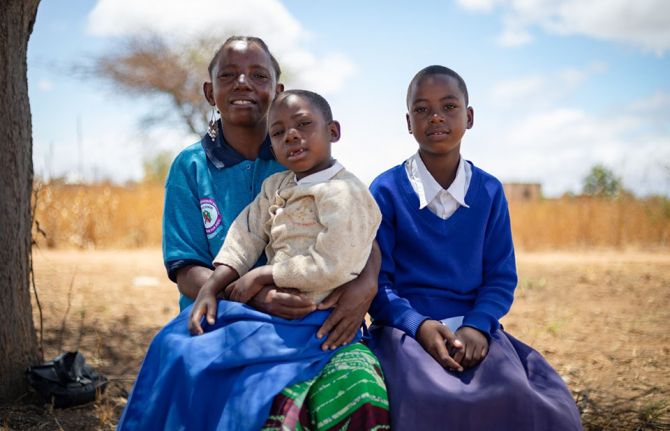

Feature Story
Communities are making the difference in the HIV response
18 December 2019
18 December 2019 18 December 2019For young women and girls, for marginalised, vulnerable groups of people such as gay men and other men who have sex with men, transgender people, sex workers, people who use drugs, prisoners and migrants, the pathway to health is not always as clear-cut as it should be.
Stigma and discrimination, repressive laws, ignorance and even hate, can all prevent vulnerable people from accessing life-saving prevention, treatment and care.
Communities are fighting for HIV services
This is where communities often step in. Communities of people living with HIV, of marginalised and vulnerable groups, of women and of young people, lead and sustain the delivery of peer-to-peer HIV services. They also defend human rights and advocate for access to essential services. They fight every day to keep people at the centre of decision-making and implementation and help to make sure that no one is left behind.
Women and girls are the backbone of care support in their families and communities, providing unpaid and often undervalued work in caring for children, the sick, the elderly and the disabled. They often underpin fragile social support systems. The involvement and leadership of women is vital in the response to HIV and we must support them to leverage their potential.
Community-based services often support fragile public health systems by filling critical gaps; they are led by, or connect, women and other marginalised populations; they provide services that complement clinic-based care and they extend the reach of healthcare to groups that would otherwise fall through the gaps.
Reduced funding is a barrier to HIV
At a time when reduced funding is putting the sustainability of HIV services in jeopardy, community activism remains critical. Indeed, a greater mobilisation of communities is urgently required and barriers that prevent them delivering services and seeking funds must be dismantled. Communities must have the space and power to voice their demands and write their own solutions.
In 2016, world leaders signed the United Nations Political Declaration on Ending AIDS, which recognised the essential role that communities play in advocacy, participation in the coordination of AIDS responses and service delivery. Moreover, they recognised that community responses to HIV must be scaled up and committed to at least 30% of services being community-led by 2030.
Most countries are nowhere near reaching that commitment and where investment in communities is most lacking, there is often weaker progress against HIV and other health challenges.
Communities stand ready to play their part in building healthier and more resilient societies, but they need our support. On World AIDS Day, let’s celebrate communities, recognise the essential role they play in the response to HIV, and commit to meeting the promises made to them.



